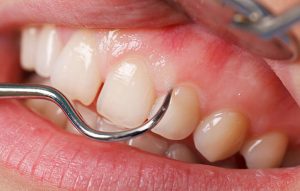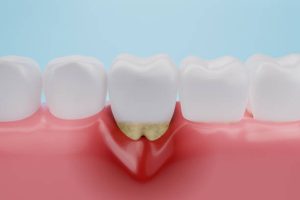The Ultimate Guide to Gum Care: How to Maintain a Healthy Smile
Good oral hygiene isn’t just about having white teeth and fresh breath; it’s also about keeping your gums healthy. Gum care is a crucial aspect of overall dental health, and neglecting it can lead to serious issues such as gum disease, tooth loss, and other health complications. In this blog post, we’ll explore the importance of gum care and provide you with practical tips to maintain healthy gums.

Understanding the Importance of Gum Health
Gums play a vital role in supporting your teeth and keeping them in place. Healthy gums are pink, firm, and fit snugly around your teeth. When gums are neglected, they can become inflamed, bleed, and even recede, exposing the roots of your teeth. This can lead to periodontal (gum) disease, which is a leading cause of tooth loss in adults.
Common Gum Problems
- Gingivitis: This is the mildest form of gum disease, characterized by red, swollen gums that may bleed easily. It’s often caused by poor oral hygiene and can be reversed with proper care.
- Periodontitis: If gingivitis is left untreated, it can advance to periodontitis. This is a more severe condition where the gums pull away from the teeth, forming pockets that become infected. It can lead to bone loss and, eventually, tooth loss.
- Receding Gums: Gum recession occurs when the gum tissue pulls back, exposing more of the tooth or its root. This can cause sensitivity and increase the risk of decay and infection.
Tips for Maintaining Healthy Gums
- Brush Properly: Brush your teeth at least twice a day with a fluoride toothpaste. Use a soft-bristled toothbrush and gentle circular motions to avoid irritating your gums. Don’t forget to brush your tongue to remove bacteria and freshen your breath.
- Floss Daily: Flossing removes plaque and food particles from between your teeth and under the gumline, areas where your toothbrush can’t reach. Make it a habit to floss at least once a day.
- Use Mouthwash: An antibacterial mouthwash can help reduce plaque and prevent gum disease. Look for one that is specifically designed to improve gum health.
- Maintain a Healthy Diet: A balanced diet rich in vitamins and minerals is essential for healthy gums. Foods high in vitamin C, such as citrus fruits and leafy greens, can help strengthen your gums and prevent inflammation.
- Stay Hydrated: Drinking plenty of water helps wash away food particles and bacteria, keeping your mouth clean and your gums healthy.
- Quit Smoking: Smoking is a major risk factor for gum disease. It weakens your immune system, making it harder for your gums to heal. Quitting smoking can significantly improve your gum health.
- Regular Dental Check-ups: Visit your dentist at least twice a year for professional cleanings and check-ups. Your dentist can spot early signs of gum disease and provide treatment before it becomes a serious problem.
Warning Signs of Gum Disease
It’s important to recognize the early warning signs of gum disease so you can take action before it progresses. Common symptoms include:
- Red, swollen, or tender gums
- Gums that bleed easily, especially when brushing or flossing
- Persistent bad breath or a bad taste in your mouth
- Receding gums
- Loose or shifting teeth
If you experience any of these symptoms, schedule an appointment with your dentist as soon as possible.

Taking care of your gums is just as important as taking care of your teeth. By following these tips and maintaining a consistent oral hygiene routine, you can keep your gums healthy and prevent gum disease. Remember, a healthy smile starts with healthy gums!
By regularly updating your knowledge on gum care and staying proactive about your oral hygiene, you can ensure that your smile remains bright and healthy for years to come.




